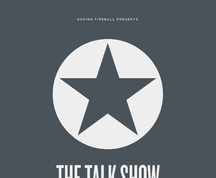Three of the world’s largest global names, Apple, Google, and Meta, are embroiled in court action for allegedly profiting from gambling-style apps on their respective digital platforms.
As reported by Reuters, the trident is pushing for the action against them to be thrown out, but the presiding U.S. District Judge Edward Davila in San Jose, California, refuted their claims.
Apple, Google, and Meta all face court action
The three companies argued that they are exempt from legal responsibilities, based on a portion of the Federal Communications Decency Act, specifically Section 230.
This piece of legislation has been used in court cases to establish the party responsible for the legal ownership as the sole responsible party for any subsequent red tape. However, according to the statute, there are still “responsibilities” that must be taken into account for the likes of the three major brands.
Judge Davila did not entirely accept their argument as legitimate, as Section 230 states that even if another person provides the solution/information, then it does not prevent the party that facilitates it from being held legally responsible for information that they “have developed or for activities unrelated to third-party content.”
Reuters acknowledged that there were multiple plaintiffs in the thirty-seven-page decision that argued that the risks and the pitfalls of these forms of gambling posed to them as an addictive “Vegas-style experience” of slot machine gambling.
As we previously covered, Apple and Google faced a complaint alleging that their actions constituted a breach of the Racketeer Influenced and Corrupt Organizations Act (RICO).
Gambling apps risk harming, argue plaintiffs
The news report on the case stated that the motion by the plaintiffs argued that suicide and financial harm were routinely caused as a result of the lack of responsibility taken by the three.
The statement focused on the role that the companies played in facilitating these games, and “brokering and collecting 30% commissions – estimated at more than $2 billion – on transactions they processed.”
The three were given names like “bookies,” according to the report, but Judge Davilla did not support this claim by the plaintiffs.
He did, however, state that “The crux of plaintiffs’ theory is that defendants improperly processed payments for social casino apps. It is beside the point whether that activity turns defendants into bookies or brokers.”
The decision by Judge Davila stands, but he mentioned that all three parties have the right to contest this in the 9th U.S. Circuit Court of Appeals immediately.
Featured image: Canva.







